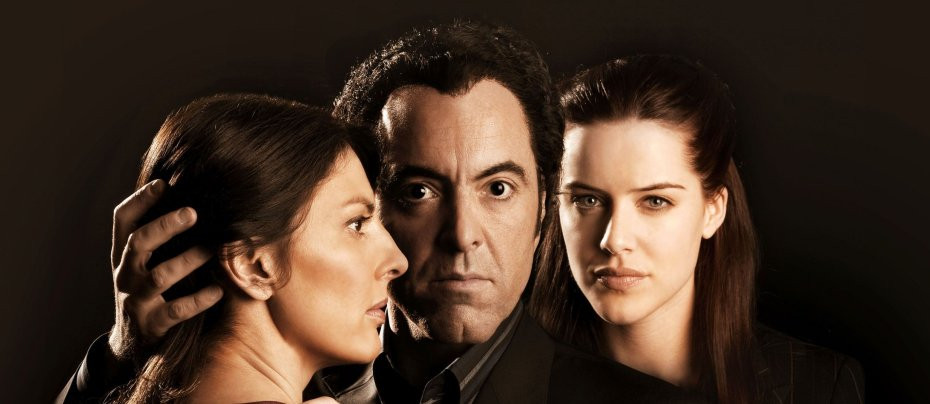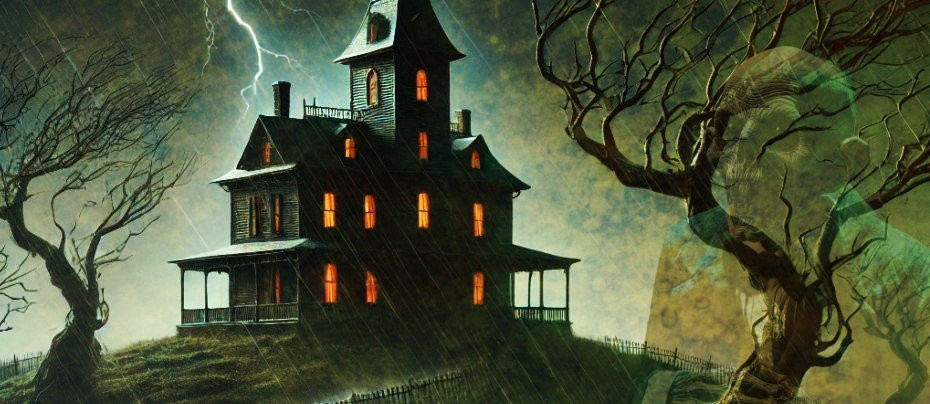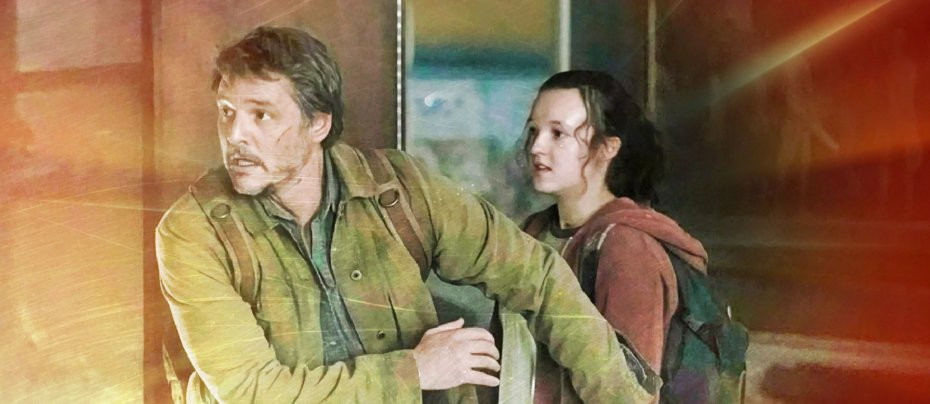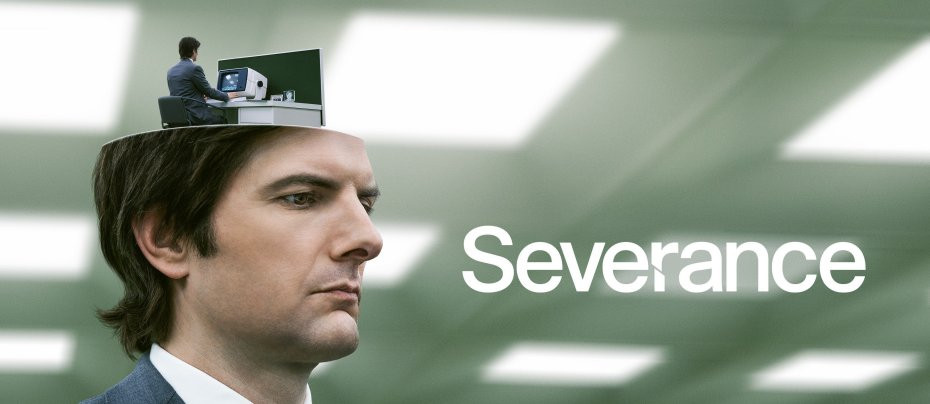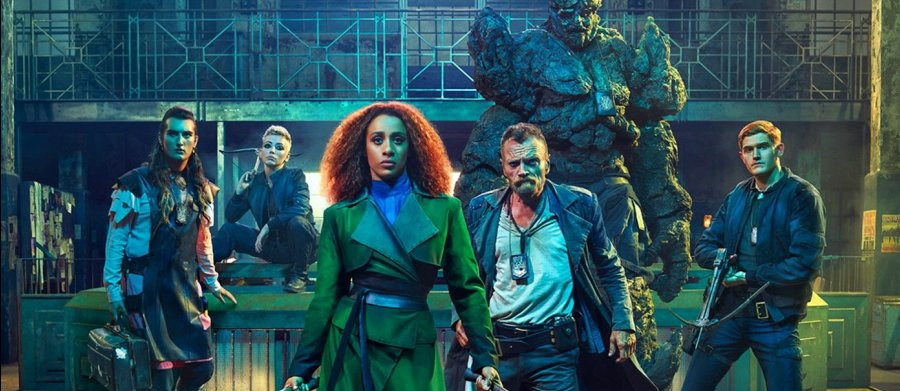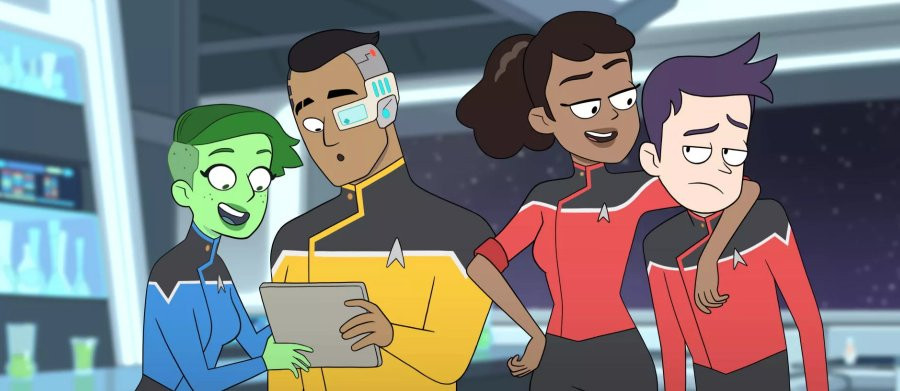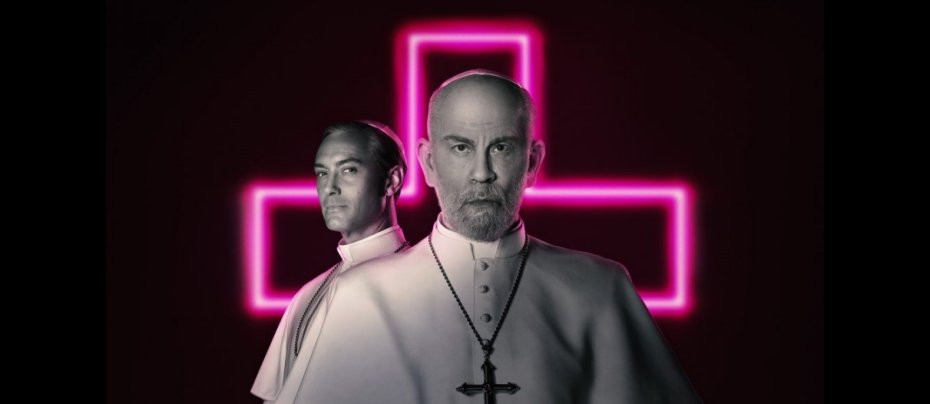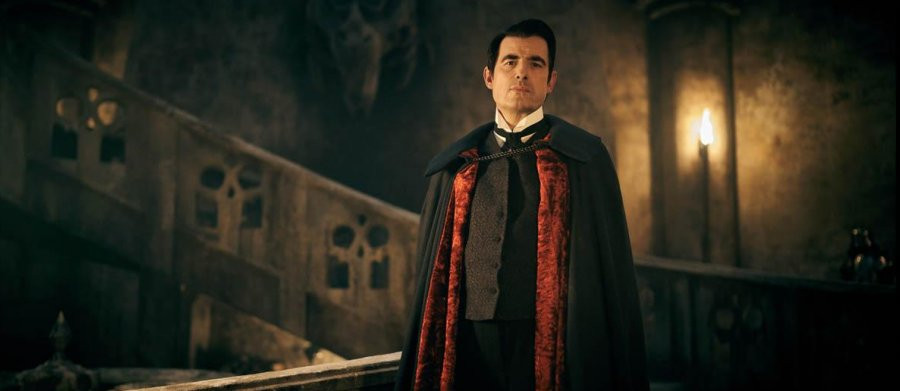
Dracula
2020 - United KingdomWarning: Contains Spoilers
Review: Daniel Tessier
Count Dracula has been featured in more film and television productions than any other literary character (although not by the most actors; that honour goes to Sherlock Holmes). Bram Stoker's 1897 novel has been adapted time and time again for stage, screen and radio, cementing Dracula as the archetypal vampire in popular mythology. It was therefore inevitable that Steven Moffat and Mark Gatiss would try their hands at recreating the story for a modern age.
Having updated Sherlock Holmes to great success with Sherlock from 2010, and Moffat having previously written a modernised Strange Case of Dr. Jekyll and Mr. Hyde, 2007's Jekyll, it was no surprise that the writers would take on Dracula. The influence of the original novel, and the many film and television versions, in particular Christopher Lee's legendary turn for Hammer, are clear. However, the new serial, broadcast in three daily parts from New Year's Day 2020, makes huge changes to the character and story, both for the better and the worse. It's very much its own beast; a revamp, if you will.
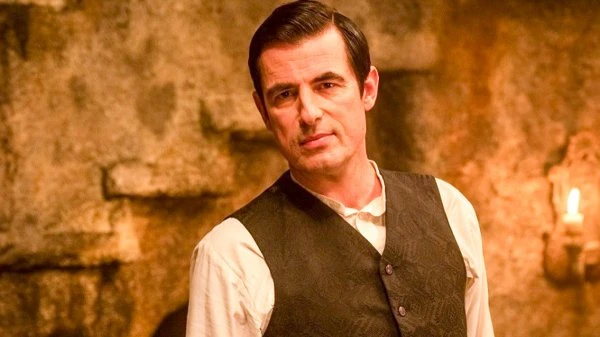
Danish actor Claes Bang (The Square, The Girl in the Spider's Web, The Affair) takes on the title role. In his first appearance, and in a faithful element of the novel that is often ignored, Dracula first appears ancient and white-haired, with Bang speaking in a heavily-accented rasp. Only once he has begun to drain the life force of his English solicitor Jonathan Harker does he begin to rejuvenate.
Bang has the charm, power and sexuality of the best Dracula portrayals, but he combines this with a laid back Londoner manner. It's a fun modernisation of the Count, which makes sense in that it ties in with his desire to become an Englishman and begin a new phase of his afterlife. It's certainly preferable to a cod-Transylvanian accent being used all the way through. On the other hand, it makes Dracula a bit harder to take seriously, and it certainly seems as if the creators of the series were after some of the success of the Lucifer series. Bang's Dracula is stylistically a lot like Lucifer as played by Tom Ellis, although thankfully Dracula manages to capture much of the spirit of its original text in a way that Lucifer fails. In any case, Bang has serious screen presence and is a fine choice for the legendary vampire.
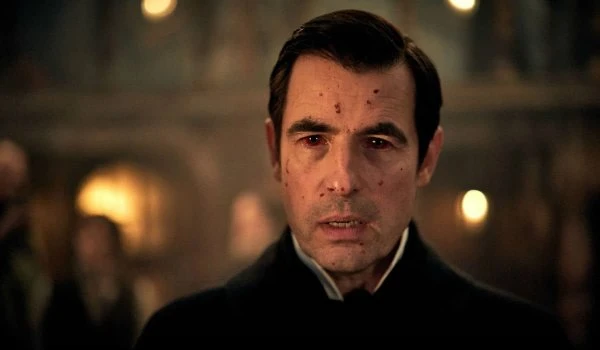
The serial focuses more on Dracula as a character in his own right than most adaptations. Usually, the Count exists as a threat to be overcome and a mystery to be solved, purely there as an adversary and with little exploration. This script, however, brings Dracula front and centre, making him the star of his own story. There's an ongoing question of what makes Dracula tick, and why it is that he behaves as he does. There's a fine balance between traditional vampire lore – much of which, in actuality, was invented either by Stoker or the writers of numerous film and television adaptations – and clever inversions. Why do the cross and sunlight repel Dracula? Why do the vampires need an invitation before they can enter a building?
Nonetheless, each episode is told through distinct viewpoint characters, with more time being spent in Dracula's company as the story progresses and we get to know him better. Moffat and Gatiss take advantage of the three-episode structure by making each ninety-minute instalment a distinct chapter of the Count's life with a new setting. This is both a strength and a weakness for the serial; it keeps things fresh night after night but stops the story from cohering. Indeed, with each episode essentially a TV movie, it might have worked better to up the running time and budget and go all the way to the cinema. It feels much more like a trilogy of films than a unified serial and that might have lessened the conceptual whiplash when we reached the third chapter.
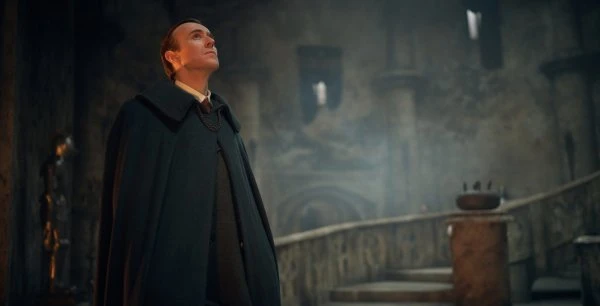
Episode one, “The Rules of the Beast” is the most recognisably Dracula-esque of the instalments, set as it is in Castle Dracula deep in the Romanian mountains. Much of this episode is told from the viewpoint of Harker – a haunting performance by John Heffernan – Dracula's ticket to England. A framing story sees an emaciated, half-vampiric Harker, slowly decomposing, take refuge in a convent where he tells his story in flashback. We see Harker deteriorate while Dracula becomes stronger, and explore his prison within the castle walls. The Hammer influence is very strong here, a 19th century gothic nightmare which never skimps on the horror. Every episode features truly chilling moments, and an astonishing amount of gore for the BBC, but it's this first instalment that includes Dracula's brides and sundry other victims existing between life and death in some of the most unsettling images on television for years.
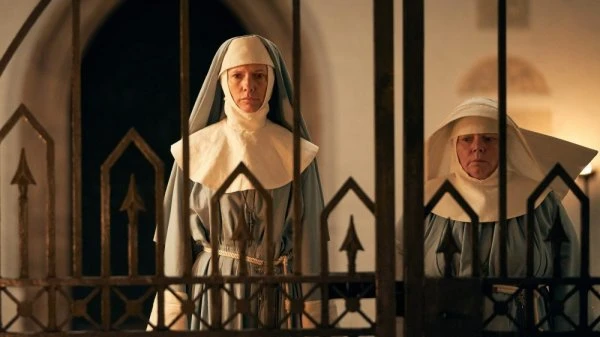
It's in the convent itself though that the most interesting elements play out. Sister Agatha, played by Dolly Wells (Good Posture, Doll & Em) with wicked wit and armfuls of class, interrogates Harker so as to learn more about Dracula. It's she who is asking the questions that the viewer wants the answers to, desperate to understand how and why the vampire behaves as he does. Nonetheless, she's no obsessive fangirl, thank god: she has absolute contempt for Dracula and his bloodthirsty actions. Oh, and she's Sister Agatha van Helsing, by the way – a surprising and charming update on the Count's traditional nemesis.
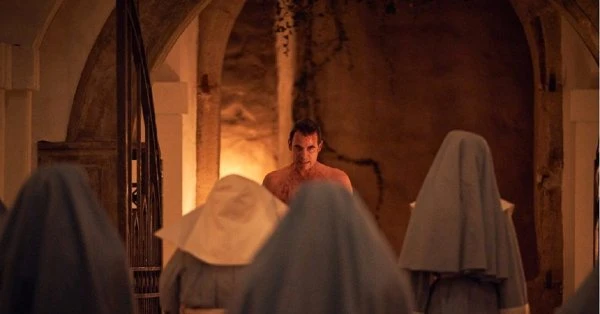
Events become more urgent when it becomes clear that Dracula has followed the escaped Harker to the convent, something that doesn't end well for the nuns. Interestingly, Harker's fiance Mina – such a major character in the novel – is dismissed by Dracula outright. The Count chooses his victims well, only taking those who have some skill or character trait he wishes to absorb, and Mina has nothing to offer him. It's a shame, in a way; Morfydd Clark makes for a very watchable Mina Murray, and while Dracula doesn't see much in her, it would have been good to spend more time with her.
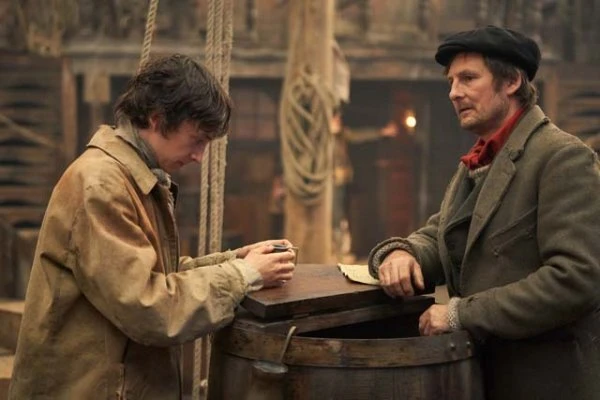
Episode two, the highlight of the serial, is titled “The Blood Vessel” - an atrocious pun, for this takes place aboard the ship Demeter on Dracula's voyage to England. Amusingly dismissing the idea that he would spend weeks hiding in a coffin full of dirt, Dracula boards as a passenger, and sets about charming his fellow travellers. Again, this episode features a framing story, this time with Dracula recounting the events of the voyage to Agatha over a game of chess. It's outright impossible that Agatha could have survived her encounter with the vampire unscathed, though, and it becomes clear that she has been infected with his undead influence and that nothing is quite what it seems. It's the events on the ship, however, that make this episode such a success. Damon Thomas directs the episode to ratchet up the tension, as Dracula picks off the cast one-by-one.
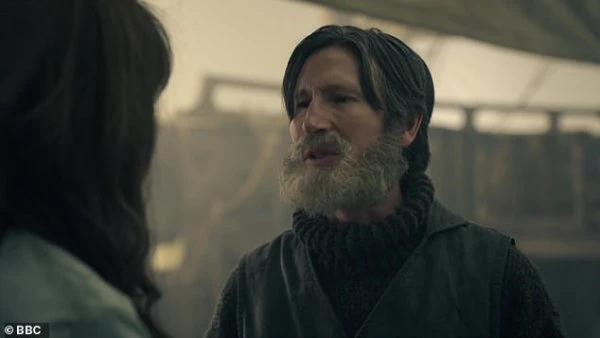
And a tremendous cast it is: Jonathan Aris (Sherlock, The War of the Worlds) gives a dignified performance as the Demeter's captain, Sokolov, while Clive Russell (Game of Thrones, Ripper Street) is his first mate. Sacha Dhawan, a day after appearing as the Master on Doctor Who, plays the respectable Dr. Sharma, while Patrick Walshe McBride plays vampire-wannabe Lord Ruthven – a clever reference to John Polidori's novellette The Vampyre and many derivative works. Catherine Schell, forever recognisable as Maya from Space: 1999 and for her roles on The Return of the Pink Panther, On Her Majesty's Secret Service and Doctor Who, gives a refined performance as Grand Duchess Valeria, someone Dracula has been stalking for over sixty years. Schell is of an aristocratic lineage, is perfect for the role, although it's a pity that the writers, having already snuck in references to Doctor Who and Sherlock Holmes, didn't have Dracula comment that she's “a beautiful woman, probably.”
Life on the fog-enshrouded ship becomes more terrifying by the moment as Dracula's guilt becomes apparent and the cat-and-mouse games a dropped in favour of outright hunting. The events build to a powerful climax that leaves virtually everyone dead, the ship destroyed and Dracula swept to the bottom of the sea. Then everything goes very peculiar, as he washes up on England's shores at last, in the 21st century, apparently to be greeted by Sister Agatha herself.
This is the point at which the serial rather loses its way. While there's certainly plenty of mileage in having Dracula active in the present day – Hammer's Dracula AD 1972 and the rather less successful Wes Craven film Dracula 2000 were no doubt in the writers' minds – episode three, “The Dark Compass,” is too major a change from the atmospheric period horror that came before. Bang's Dracula seems defanged in this new world, thoroughly impressed by how rapidly things have progressed and surprisingly quick to learn how things work, but nonetheless out of his depth. He is quickly captured, and although he is soon released by his own legal support (the inevitable but entertaining Mark Gatiss as lawyer Renfield) he remains diminished. It seems that Agatha somehow survived as a vampire to the present day, but it's actually her great-great-etc. Niece, who is also played by Dolly Wells. She's still excellent, but the character just isn't as interesting, a vampire expert who has been running the Harker Institute, waiting for the day the Count might return. Sister Agatha does get to maintain a presence, however, and it helps the episode no end.

The final episode also features modern versions of more Dracula literary character, including Matthew Beard (Vienna Blood) as a very young Dr. Jack Seward, and the brilliant Lydia West (Years and Years) as his one-time lover Lucy Westenra, destined to become Dracula's next bride. Dracula becomes obsessed with Lucy in the way he avoided with Mina, and while West is magnetic, she's doing very well with what is, and has always been, a very shallow character. Lucy's journey to the dark side and inescapable resurrection as a vampire makes for some truly horrific imagery; it has to be seen to be believed, but suffice to say she does not retain her looks. However, by now the episode seems to be going through the business of tidying up, and when Dracula and van Helsing face off, the final explanations for the Count's nature aren't as surprising or revealing as the writers no doubt hoped. Nonetheless, the strength of the performances gives the climax some power, but by now, the life's been drawn out of things.
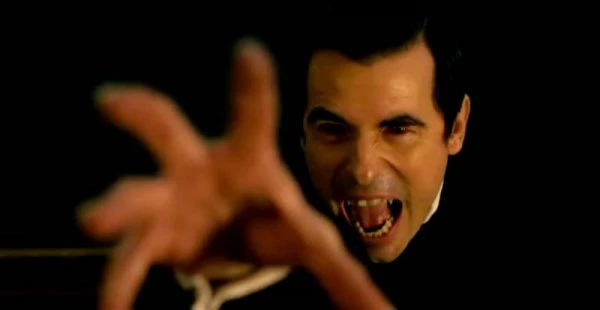
Dracula is a flawed but imaginative take on a classic of horror literature. Kudos to Moffat and Gatiss for bringing the Count back to life once more, and for creating a version that stands out amongst the many, many Draculas past. By turns horrifying and extremely sexy, never less than entertaining, Dracula perhaps had too much of the writers' signature tropes to ever feel entirely unique – the use of four-time Sherlock director Paul McGuigan for episode three compounds this – and it's never quite as clever as it thinks it is. Still, for the difficult genre of television horror, this is a mostly successful resurrection.
About the Writer of this article, Daniel Tessier
Dan describes himself as a geek. Skinny white guy. Older than he looks. Younger than he feels. Reads, watches, plays and writes. Has been compared to the third, fourth, fifth, sixth, seventh, eighth, tenth, eleventh and twelfth Doctors, and the Dream Lord. Plus Dr. Smith from 'Lost in Space.' He has also had a short story published in Master Pieces: Misadventures in Space and Time a charity anthology about the renegade Time Lord
Dan's web page can be here: Immaterial
Seen this show? How do you rate it?
Seen this show? How do you rate it?
Published on January 16th, 2020. Written by Daniel Tessier for Television Heaven.


